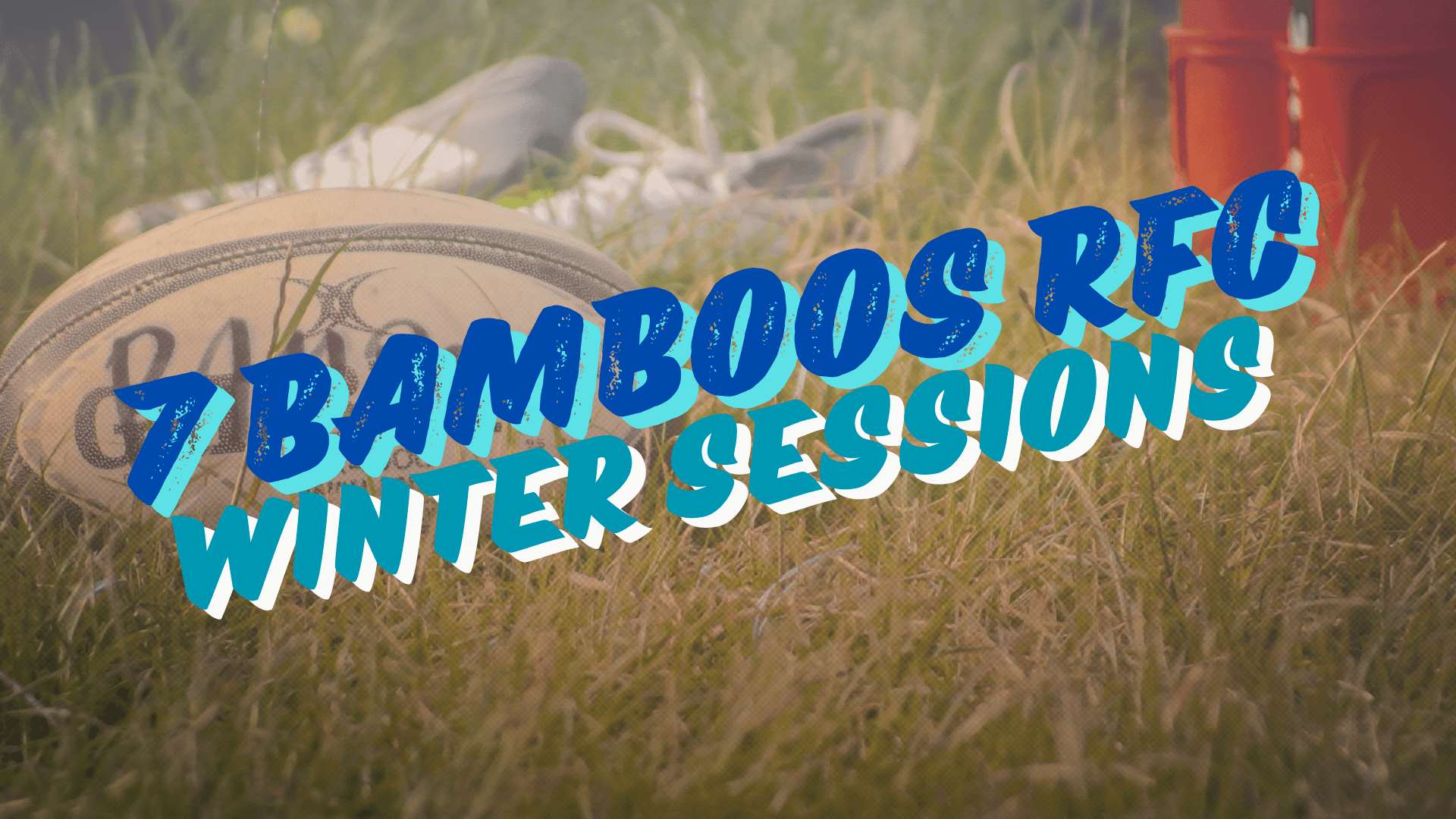Get ready to kick off winter with 7 Bamboos RFC!…

The Secret of Purposeful Coaching
Introduction
Recently I scrolled through some old Uni work (from my Master’s degree in coaching science) when I stumbled upon an interesting paper titled: “The purpose of the coach”.
The assignment discussed the different characteristics of a successful coach and explores why modern coaching is more than providing instructions and feedback.
The answer to the question: “What is the purpose of the coach?” is rather straightforward — Unlocking potential and maximising performance.
So let’s twist the question and ask: What is purposeful coaching?
In a nutshell, we need to understand coaching from a much wider holistic perspective.
The challenge for coaches is to balance the right amount of knowledge, values and attitudes toward the sport and the athletes.
This article recognises “purposeful coaching” by identifying four key roles: parent, artist, manager, and scientist.
My aim is to inspire the reader with a concept that leads to a deeper and more valuable relationship with your athletes and eventually success through improved performance.
Yet, this is not limited to a sports environment but applies to all other coaching settings.
Whether you have a leadership role within your organisation or work as a life or business coach, understanding those fundamental roles helps anyone.
So if your mission is to become a more purposeful coach, carry on reading.
Coaching is complex
Anyone, regardless of their experience, knows that coaching is complex and challenging.
You deal with many “uncontrollables”. Working with humans means first coping with fluent situations. No day is the same, and every moment matters.
Creating an optimal learning and development environment requires the coach to embody a variety of roles to handle controllable and uncontrollable situations.
Research has identified four particular roles, coaches should embrace and embody to achieve success:
A supportive parent, an inspirational artist, and a managing economic and developing scientist.
Before we dive into each of these roles, it’s crucial to understand that they are interlinked, which requires a holistic and flexible approach.
The goal is to create a supportive learning environment (parental and scientific approach) with an appropriate level of challenges (managing role) and a passion (artistic characteristic) for the sport.
In this environment, the coach sits in the middle and constantly manages any of those roles successively or even simultaneously.
More about this in a moment.
The Four Roles of a purposeful Coach
Here is a brief description of each of the four fundamental roles, required to achieve more purposeful coaching.
The (supportive) Parent
“We may not be able to prepare the future for our children, but we can at least prepare our children for the future.” Franklin D. Roosevelt
In this fundamental role, the coach personifies a protective character with the purpose to build a trustful relationship with the learner.
The intention is to support and encourage, by being an engaging two-way communicator (listening and verbal/non-verbal communicating).
Equally important is to ensure that the coach is around and present when needed. The “parenting” role is an emotional one with empathy identified as the key asset.
In interviews, many famous athletes often refer to their coaches as another “dad” or “mum” who was always there for them. A statement that underlines the importance of this role.
The (inspiring) Artist
“An artist is not paid for his labour but for his vision” James Abbott Mc Neill Whistler
This role requires creativity and inspiration. Again this is a two-way process.
The coach acts as a creative and inspirational source and at the same time soaks up inspiration from others.
Ideally, the environment allows room to generate new and stimulating ideas. The coach develops an inspiring philosophy, encouraging players to be able to develop abilities.
The (managing) Businessperson
“When in doubt mumble, when in trouble delegate, when in charge ponder.” James H. Boren
In terms of “traditional” coaching, this comes closest
The coach acts as a manager and takes responsibility for the individual’s actions. The main goal is to ensure all participants within the coaches’ environment develop as effectively as possible by building and flourishing deep relationships.
Beyond that, the coach is also a salesman. This includes awareness about own strengths and assets with solid confidence to “sell” them to the performer.
The (developing) Scientist
The best scientist is open to experience and begins with romance — the idea that anything is possible. Ray Bradbury
Wearing the science hat is all about generating and distributing knowledge.
This role has a lot of parallels to the teaching profession. The main assets required are questioning and explanatory skills.
Your job as a coach is to create an environment in which the performer can learn and apply the valuable knowledge they need to succeed.
Flexibility is key
Now as we defined the four key roles of a purposeful coach, let’s dive deeper into the actual application of it.
The coach needs to select and apply the right character at the right time consciously and carefully. Communicating with an inappropriate style can easily lead to confusion.
One Coach — Many Hats
The key to this complex skill is to understand how each character interconnects with each other and how to benefit from its roles’ strengths.
It might be the case that you change roles several times during a day and to demonstrate the level of flexibility it’s helpful to see yourself in the model below.
Three simple examples
An athlete is feeling low in energy and disappointed with the training progress. A coach’s response with cold facts and knowledge can in such situations further damage the athletes’ confidence. It’s the empathy of a caring person (like a loving parent) which is now required.
Only if the athlete feels that the coach understands the pain, she/he will open up for improvement.
In another example, the coach wants to explain a specific goal-shooting technique. Now it’s time to wear the scientist’s hat and become a clear and precise “explainer” without being overly emotional.
A coach must know exactly how their athletes’ intake and process information.
Finally, at moments when training becomes boring and repetitive, the coach needs to turn into a source of inspiration by introducing new creative ideas (ideally developed with the team).
You get the idea of how diverse the roles are but yet how important it is to show the right character at the right time.
Far too often leaders fail because they don’t understand what role is required especially in critical situations. Just take a look at politicians who choose the wrong words.
Don’t be a turncoat
Now you might wonder, if a constant switch between different roles, leads to a lack of authenticity, something every leader wants to avoid.
This is the tricky part. Switching between roles and remaining authentic requires a lot of practice. Most people are very good at identifying whether someone actually means what they say and if they act in an authentic way or if it’s just faked.
The way to solve this issue? Establish a close and deep relationship with those around you and build a strong coaching philosophy.
A personal coaching philosophy is a great tool to enable coaches to question their practice and develop their own understanding and knowledge, as well as their performers.
So the more often you apply for different roles and the more expertise you build up, the more likely it is that you come across in an authentic manner.
Conclusion
While the purpose of coaching is relatively simple to define, figuring out what purposeful coaching looks like can be more difficult.
In summary, this article uncovered that purposeful coaching consists of the ability to embody different characteristics at the right moment.
Four roles, parent, manager, artist and scientist are particularly important.
For coaches to embody and switch between those roles, it’s required to build a deep relationship with their players and establish a personal philosophy.
What’s your take on purposeful coaching? Or do you have any questions about the topic? Let us know.
If you feel that this article helps others, please share it on social media.
#coaching #purpose #development












